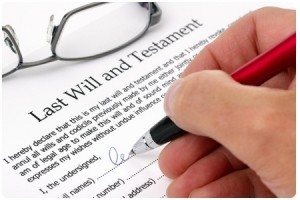 Estates, Powers and Trusts Law (EPTL) 3-2.1 specifies certain “formalities” that must be followed to ensure the decedent (person who has died) has executed and signed a valid will. Having an experienced Long Island estate attorney guide you through the process will decrease the likelihood that the validity of the will is challenged in Surrogate’s Court.
Estates, Powers and Trusts Law (EPTL) 3-2.1 specifies certain “formalities” that must be followed to ensure the decedent (person who has died) has executed and signed a valid will. Having an experienced Long Island estate attorney guide you through the process will decrease the likelihood that the validity of the will is challenged in Surrogate’s Court.
It is important for the testator (person executing the will) to be of sound mind, free of duress or pressure, not under the influence of alcohol, and otherwise is capable of executing a will. They should know the nature of their bounty (i.e. heirs/relatives) and the extent of their assets. An experienced wills lawyer will oversee the process and ensure that the will is executed pursuant to the requirements of the EPTL.
The Will must also be properly acknowledged by two “disinterested parties”, that is, people who would not be a beneficiary under the will or would be entitled to an intestate share if the decedent died without a will. Relatives (or those related to said relatives by marriage) and individuals who would benefit if the will was admitted to probate would not be suitable witnesses.
Furthermore, while a spouse can not be “disinherited” from their spouse’s estate (as they have a right to an elective share, which is one-third of the gross estate), one can choose to consciously not include other relatives like children. However, for purposes of avoiding a potential will contest, it would benefit the testator if they at least acknowledge that child (referred to as “issue”) and state that for reasons known to the testator, that they choose to either disinherit the issue entirely, or rather leave a nominal amount for that person.
To reduce the chances of a will contest and to increase the likelihood of a validly executed will, please contact anexperienced New York Wills and Estates lawyer at the Law Offices of Michael W. Alpert.